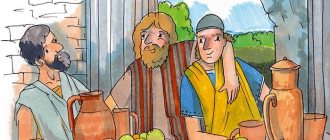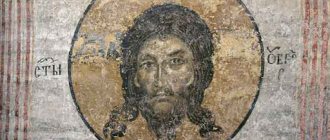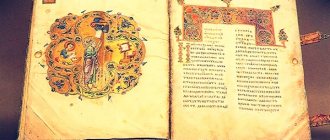Catastrophe of love
Eduard Boyakov. Photo by Vladimir Eshtokin
What do we most often mean by love? Something that is not really love. We always try to fit it into a logical chain of cause and effect, we constantly expect responses from our loved ones, we demand, we love for the good and hate for the bad.
There are traditional church interpretations of the Gospel parable of the Prodigal Son, which I certainly accept. But the dimensions of the parable are endless, and for each of us it will always sound according to our own thoughts and experiences. This parable, of course, is about forgiveness, and repentance, and the danger of ostentatious behavior, and about relationships with God. But for me, first of all, it is about one total problem: about our inability to love. Therefore, I would like to talk about three points in the parable that are especially important to me.
The first moment is the state in which the father runs towards his son. Although the father does not yet know that his son is coming to him with repentance! And if he now becomes rude and says: “You bastard, he gave me little money!”... But in the very first seconds, when he was still far away, his father saw him and took pity! And he doesn’t even walk - he runs towards his son! He has already accepted it! He has already forgiven him! Or rather, he was not offended by him! And he simply cannot help but run - because he loves. This is what love is.
The second point is the father's reaction to the falls of his sons. The figure of the father, his actions and words in this parable are amazing. It’s not just what he says that’s amazing, but also the way he speaks. The Gospel is generally not afraid of expressive means, but note: this parable says practically nothing about the feelings of a loving father.
When the youngest son asked ahead of time for his share (the part of the inheritance that is rightfully due to him; another thing is that it can be received after the death of his father), there is not even a hint that the father was upset or angry. It is important. But his son committed an obvious crime, because in those days when Christ told this parable, to waste the money bequeathed by the family meant to commit a terrible sin. And this is connected, first of all, not with the fact that you drank or went out with the girls - but with the fact that you abandoned the very important idea of serving your ancestors and descendants, serving your family, clan. Breaking this chain meant becoming an apostate in the eyes of your family. A man who insulted his father was considered a scoundrel and, according to the Old Testament law, deserved death (for my son was dead and came to life, the father later says).
But when the son presented his father with a demand for his share and thereby threw himself into the abyss of sin, the father simply divided the property between them. Not with regret, not with anger, not with a curse or anything else. Just divided it. Because where there is love, there is a space of freedom.
Please note that the father did not run after his son. He did not organize any searches, did not ask his friends to secretly feed his son, as would be the case in some French novel about a kind father who watched, worried and waited. No, the father worked with his eldest son. The father plowed: he thought about his great-great-grandchildren, he had no time to think about anything else. The son left, he made his own choice, and he must return himself. This also applies to each of us: we ourselves must return to God if we once refused His help, His intercession.
In the same way, it is not said how the father called his eldest son when he became angry and did not want to enter the house. With love, affectionately, with indignation? Christ says this: His father went out and called him. The father simply came out to his - also beloved - son. And again you feel this incredible space of freedom.
But how happy the father is, how he rejoices when the prodigal son returns! The son wanted a better life, he wanted to become just like his father. Life without a father - we mean life without God - was thought of by him as something good, independent. But now, he “comes to his senses” (this is an incredible gerund - having come to his senses!), and realizes all the horror of the loss of wealth, which, of course, is measured not only by money. Father! I have sinned against heaven and before you! - only a person who has repented can say this. I am not worthy to be called your son - that is, I do not ask for as much as I had. Now - as a mercenary, now let me live in the basement of the house in which I once had a room. The son lowers the bar of his demands to the limit; there was not even a dream of a bull and a ring in his thoughts.
The third moment is the abyss into which the older brother tumbles himself. Having learned about the reason for everyone’s joy, he doesn’t even want to enter the house! Essentially, the same problem happened to him as to his younger brother. He commits exactly the same sin: he condemns his father and abandons his brother. And it doesn’t even matter that he didn’t go to a distant country, didn’t carouse with harlots. It is important that he crossed out his father and brother from his heart. But what is his problem? His father loves him just the same! But the eldest son wants him to love him for specific things. He follows everything! And therefore he should be loved more than a dissolute, ungrateful son who went on a spree. He's not like that!
Yes, he's not like that. But he thinks like a Pharisee. For him, as for the Pharisees, only external observance of the rules, only external splendor is important. “Everything I have is yours,” his father tells him. Let us rejoice together that this brother of yours was dead and is alive, was lost and is found.
What is the essence, meaning
The parable is also a description of every fall and the path of repentance:
- moving away from God is a rejection of the Source of life, and therefore no work without Him can be successful; maybe because without God a person ceases to see the meaning; So the prodigal son spends his father’s estate - just to spend;
- God never forces a person to be with Him - the father meekly gives his property to his son, does not complain, does not punish - he just lets him go;
- grieving for his son, the father does not look for him, does not persuade him to return, he just waits - so for the Lord, human freedom is inviolable; even if it leads to evil, this is his choice, even if it is wrong, causing sorrow;
- but only the intention to change one’s life, the will shown by a person, attracts God’s abundant help and grace to the sinner.
The hope I'm most afraid of losing
The parable of the prodigal son sounds today at all levels; it tells us not only about what concerns our faith. Our society is a society that has not only lost God, but also lost family. How many “birth scars” we have, terrible traumas that we carry from the time when temples were destroyed, when there were so many wars, when entire families were wiped off the face of the earth and their lineage was interrupted... I really miss a common line that would stretch from grandfathers and great-grandfathers, it does not grasp. I don't live in the house that my grandfather built. I have nothing material left from him. My great-grandfathers and I are not related by profession. And this terrible dispersion of our lives is manifested today in the simplest things.
For example, when my older daughters decide whether they will go on vacation with me or with their friends. Will they celebrate the New Year in their large family, with their father, or not? It is in such seemingly trifles that today the connection with the family is lost. This is very dangerous, this line must not be interrupted. And here I sit and experience all this. I communicate deeply with my daughters, but they both follow a path of independent choice. They took their part. Yes, they probably don’t “waste” it as stupidly as the prodigal son. But it still hurts me a lot. Condemning them for this is stupid. Complaining or being indignant is absolutely pointless.
And therefore, re-reading the parable of the prodigal son again and again, I linger on the lines and when he was still far away, his father saw him and took pity; and, running, fell on his neck and kissed him. My father is running, and his condition at this moment is very important to me. His run is imbued with absolute hope. It turns out that this is how you have to live - endlessly hoping. And my daughters still came for the New Year!
Who is author
The story is contained in only one Evangelist, St. Luke, in chapter 15. However, it is, of course, wrong to consider him the “author” of the parable: after all, the Apostle only wrote down what the Teacher said.
Jewish tradition
In addition to the Gospel version, there is also a version of the parable that goes back to the oral tradition of the Jews. It is associated with the New Year holiday called Rosh Hashanah, or the Day of Trumpets, when the horn - the shofar - is sounded at prayer meetings.
Interesting fact
The celebration of the New Year, which is preceded by deep repentance, is associated with the story of a son who left his father. According to the Jewish version, living in a foreign land, he even forgot his native language, so his father recognized him only by his voice - his cry symbolizes the shofar.
It is worth saying that this version of the parable arose among the Hasidim, a movement of Judaism the 18th century , and therefore cannot be considered ancient.
I myself only recently returned to my father
In general, I myself relatively recently had a reunion with my own father, with whom I practically did not communicate until I was 40 years old. He simply wasn't in my life. There was a mother, there was a grandmother, but there was no father. They didn’t tell me that my father was a scumbag, he abandoned us. No. But they didn’t say anything else. They just separated - and that’s it, somehow.
It’s probably impossible to just say: “Oh, I’ll go see my father.” As a rule, this is a decision associated with a strong shock and repentance. About 10 years ago, such upheavals occurred in my life associated with the loss of people close to me, with many other problems. There was a time when I actually couldn’t walk on two legs, I was so sick. At some point, a severe crisis began. None of this was directly related to my father. But I suddenly saw that a lot of what was happening in my life was connected with his absence. And realizing this, I thought: I urgently need to fly to him.
I fly to my father and there I learn about the tragic events that happened in his life. I remember I took a friend with me who studies psychology, and he and I settled for a while in my father’s house, by the sea. Alone, my friend and I talked a lot, I tried to digest what was happening, endlessly continued the showdown: who abandoned whom, mom or dad, why, why, who is to blame, what my mother’s mother said, what my grandfather answered, what my aunt objected, who destroyed what...
And suddenly - like a flash. At that moment, when I confidently tell my friend how different my father and I are, he says: “Listen, what eyes your father has! So bright, so deep!” It was an incredible moment: his words just slammed into me, as if I had emerged from some kind of abyss. I suddenly realized that I had to look at this person not through the prism of some actions he committed 30 or 40 years ago, not through finding out the details of who betrayed whom and who let whom down, not through reproaches for the childhood spent without him, for my mother ... Poking around in this... Is it right? Of course, this does not mean that I should completely stop paying attention to the facts, but all this should not change anything at all in my initial attitude towards my father. Gratitude and prayer are the first. Isn’t it the same with God?..
I have three children, and I gave each of them a completely different amount of time and attention. If we talk about the two older daughters, then it would be more correct to use the verb “did not pay.” But I still hope that the attitude towards parents as an unconditional divine gift will prevail in them. I really hope for it. Not out of selfishness, not because you want someone to take pity on you and look after you in your old age. Not at all. I just felt it myself. And, without realizing this, they will not go further, they will spin endlessly in the wheel of egoism.
Theological interpretation
Perhaps the most poignant of them is the chant heard on the Sunday of the Prodigal Son, one of the Sundays preparing believers for Lent :
“Open the embrace of the Father to me; I have spent my life in fornication; look at the unexpected riches of Thy bounties, O Savior, do not despise my heart, which is now impoverished. For you, Lord, I call with tenderness: those who have sinned in Heaven and before You.”
Anyone who was lucky enough to see monastic tonsure can fully experience the words of this chant. Here the parable is not just “interpreted,” but visibly embodied: a dark temple, burning candles, and a future monk, barefoot, in a white shirt, crawling to the altar while singing:
“...do not despise my now impoverished heart...”
This is how every soul goes to God - from the vanity of the world to the embrace of the Father, waiting for His child.
Return of the Prodigal Son. Rembrandt. Fragment. 1666/1669
Why love the father who left me?!
Sometimes I conduct trainings that are attended by a large number of different adults and young people. And every time I am amazed that almost everyone has a difficult relationship with their parents. Everyone thinks that this is his secret, that it is only he who has such a difficult situation. Everything is so good around me, but for me it’s not so good. But when we start to touch on these things, when we start to figure it out, talk about ourselves, about love, about marriage, about the relationship between a man and a woman, everything comes out. Once I very simply, as a banality, said the following phrase: “If you have not resolved problems with your parents, if you are not in a relationship of love and joy with your father or mother, do not expect that you will have a good life in your own family.” " And at this moment the audience simply begins to turn inside out, tear it apart! And someone openly, someone during a break or after class comes up to me and, almost pressing me to the wall, begins to say passionately: “What are you talking about?! What kind of love is it if he just up and left, if he abandoned us?! What kind of nonsense are you talking about! No, I have a wife, I have love with her, but I don’t have this with my father! Why should we love him, if he..." - and then the details begin... Like for what? For what he is. Because he gave birth to you.
The parable of the prodigal son not only shows through the example of a father what it means to truly love. It also shows how it is sometimes difficult and painful for children to love a father against whom they have complaints. I think the eldest son still has a lot to say. If you arrange a hearing of the case, oh how much he will say! And he will probably start from childhood: “It all started a long time ago. This youngest son has always been a favorite...” - and this darkness and horror begins, into which we so often plunge ourselves. And then the path to repentance, to “coming to our senses” awaits us again. An infinitely wise parable...
Prepared by Daria Barinova
On the screensaver is a collage of Foma.ru based on the photo Photo of Moscow Moscow-Live.ru and the painting The Prodigal Son (1882, Nikolai Losev).
Main thought
Of course, this is not the story of a father and sons - but an image of the relationship between a man who has moved away from the Creator and God, who awaits his repentance. St. Petersburg spoke about this very accurately. Paisiy Svyatogorets:
“When a person takes one step towards God, God takes a thousand steps towards him.”
It is fundamentally important: the son has just “come to his senses”, has just begun the path to his father - and he is literally running towards him. The sinner has just begun to repent - and is already forgiven by his father.
Rembrandt painting
The most famous work is called “The Return of the Prodigal Son.” Here is an emaciated, ragged young man, fallen to his knees before a venerable old man, tenderly hugging his child. However, this is not the only painting by the artist dedicated to the parable: the title “The Prodigal Son in the Tavern” has another painting that depicts... the artist himself and his wife Saskia. One can only guess what motives made the painter imagine himself as a sinner indulging in earthly pleasures.
Rembrandt The Prodigal Son in a Tavern. 1635 Oil on canvas. 161 × 131 cm Gallery of Old Masters, Dresden
The theme of return in the novel by Charles Dickens
The writer himself called the parable the most beautiful story in the history of people. At least several of his novels are, as it were, an attempt to look a little further than the parable itself, to see how the life of a person who once made the wrong choice, even if he then took the right path, could turn out. This is the hero of the novel "Great Expectations", Pip. He leaves the village looking for a better life, but finally realizes that it was there that he was happy. However, he returns home on the wedding day of the girl he once loved, who is marrying someone else: life cannot be turned around, you have to pay for your choice.
Still from the film based on the novel by Charles Dickens “Great Expectations” original title Great Expectations UK, USA, 2011 Douglas Booth as Pip
This is the human view. But the Lord looks at the repentant in a different way.
Pleasure
...The following picture appeared before the traveler’s eyes. He is in luxurious clothes, hung with gold chains and bracelets, feasting in a big city with many new friends. He immediately sold the entire inheritance to visiting Syrian merchants. Why does he need all these dirty sheep and cows? What should he do with the grain and corncobs? His soul wanted something completely different - joy, fun and most importantly - freedom!
And all this can easily be bought for money. And now he has so many of them that he can enjoy the long-awaited freedom all day long to the music of skilled flutists and the dances of beautiful dancers. The best wine, the most delicious food, beautiful girls to whom he gives jewelry and pieces of silk for dresses - he has all this every day! You no longer need to travel around dusty fields and gardens with your father, you no longer need to listen to the boring grumbling of your older brother, or see your mother’s reproachful gaze. He's free! And you don’t have to answer to anyone else in your life!





